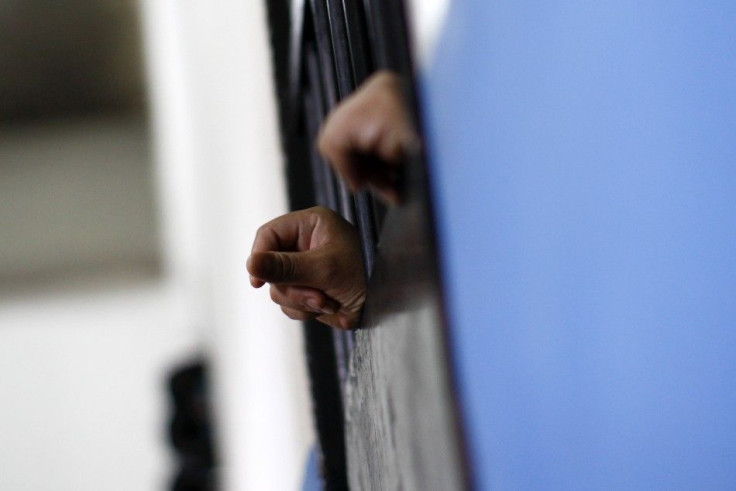If Standard Chartered Were A Person, How Much Hard Time Would It Be Looking At?
Corporations Are People Too, After All

An uncanny legal document has market-watchers in New York and London buzzing after a U.S. state regulator -- in exceedingly terse language -- accused British bank Standard Chartered of being a "rogue institution" that disregarded U.S. law and lied to the government in its effort to keep providing banking services to Iran.
The "Order Pursuant to Banking Law" issued by the New York State Department of Financial Services asserted that Standard Chartered Bank "engaged in deceptive and fraudulent misconduct in order to move at least $250 billion through its New York branch on behalf of client Iranian financial institutions that were subject to U.S. economic sanctions." The bank "then covered up its transgressions."
Blaming the bank's "evident zeal to make hundreds of millions of dollars at almost any cost," the regulator said the financial institution "indisputably helped sustain a global threat to peace and stability" and therefore threatened to revoke its banking license in the state.
Besides the wording and pre-emptive nature of the document -- regulatory actions are rarely filed without the involvement of the company accused -- the legal brief was unusual in that it gave Standard Chartered little room to maneuver, accusing it of specific violations of law the company will either have to contest or plead guilty to. Due to private legal liabilities, companies settling regulatory charges almost never admit to wrongdoing, even when accepting large fines.
The brief even accuses the bank of violating two sections of the New York State penal law code: "obstructing governmental administration in the second degree" and "offering a false instrument for filing in the first degree."
Which leads to the inevitable question: If Standard Chartered Bank were indeed a person instead of an international financier, what kind jail time would it be facing?
The International Business Times asked a criminal defense attorney in New York just that question. The verdict: If corporations were truly people, they would be looking at two decades or more in the slammer.
The charges against Standard Chartered, per the regulator's filing, mainly relate to "falsifying business records with the intent to defraud examiners" and facilitating "unauthorized Iranian transactions." If the company were an individual, "a quick glance at the alleged conduct indicates two main crimes that would likely be charged: money-laundering and enterprise corruption," the lawyer said Tuesday.
Under New York state statutes against those two crimes, a defendant found guilty could be sentenced to a penalty of between eight-and-one-third and 25 years. The attorney noted that "it seems likely that a maximum sentence would be given because of the extent of criminality alleged in this case." And if the judge really wanted to throw the book at them, the attorney explained, they could consider every instance where Standard Chartered Bank engaged in alleged illegal conduct, no doubt hundreds of them, as a "discrete act of criminality" rather than "one criminal transaction."
Federal involvement would make the possible prison term even stiffer, with the appropriate federal money-laundering statute carrying a penalty of "roughly 15 to 19 years," and a racketeering conviction "punishable by up to 20 years" in Club Fed.
Whatever punishment Standard Chartered Bank receives will arguably be much less severe than that, and jail time hardly possible. The New York regulator is threatening to pull the bank's state charter, unless it can "explain these apparent violations of law and to demonstrate why SCB's license to operate in the State of New York should not be revoked." Additionally, it is not clear federal officials would be pursuing additional punitive measures, even as the White House signaled that the U.S. Treasury was "in close contact with both federal and state authorities on this matter."
Losing the bank's ability to do business in New York would severely impair future profits. Analysts at Nomura estimated Tuesday that some 15 percent of the banking group's revenues comes from operations that would be affected. And indeed, the worst of the damage the bank might suffer may have already been caused by the sharply worded complaint from the regulator, which said Standard Chartered Bank's actions "left the U.S. financial system vulnerable to terrorists, weapons dealers, drug kingpins and corrupt regimes."
That, however, is still a far cry from the sentence an individual would face were he convicted of the same charges. Just ask the 1,700 locked-up felons at New York's Sing Sing Correctional Facility, all of whom would likely take catastrophic damage to their reputations over spending two decades wearing orange, taking five-minute showers and trying to avoid getting shanked in the exercise yard.
© Copyright IBTimes 2025. All rights reserved.





















